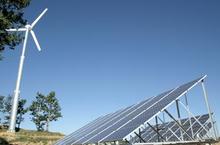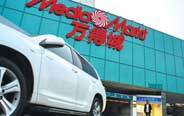
Founder of the Paulson Institution Henry M. Paulson, Jr., who is also former U.S. Secretary of the Treasury and chief executive of Goldman Sachs, receieved an exculsive interview from the People's Daily, in which he shared his views about the challeges China faces in the process of urbanization.
People's Daily: Some people said the urbanization of China and innovation of the U.S. will be the two engines for the world economy in 21st century. What are the brief features, opportunities and challenges in China's pavement to urbanization in the next couple of years? And what is your expectation about its role played in promote world economy?
Paulson: The United States and China are the two largest economies in the world, producing between them more than a third of the world's output. And both of our countries face significant challenges— from ensuring robust but balanced growth, to creating new and better jobs for our people, and raising standards of living.
Global prosperity depends on China's ability to reinvent its economic model and continue to be an engine of growth. Yet it's critical to pursue economic goals in tandem with environmental goals and priorities that protect and preserve public health and the ecosystem around us. China's successful urbanization is the key to the next phase of China's economic development and its continued economic prosperity has significant economic and environmental implications for us all.
Indeed, urbanization creates a natural tension between economic and environmental interests. Whether it's developing land for new roads and buildings, or expending energy resources to power our homes and fuel our cars, our urban areas consume significant amounts of the earth's limited resources. Moreover, China's urbanization efforts are unprecedented, in scope and scale.
A short-term focus, with an emphasis on GDP growth, won't build lasting prosperity. What's the value of another point of GDP, if polluted drinking water and smog are killing people? China's new leaders understand this – and as some have articulated in recent weeks, a modern economy can't continue to prosper if it destroys natural resources or undermines the very environment on which it depends for food, water, energy and clean air.
The 12th five-year plan reflects a priority to achieve successful urbanization by setting ambitious goals, which include ensuring 1) more balanced growth, 2) greater energy efficiency, and 3) lower energy intensity. If fully implemented, these actions could have tremendous positive economic and environmental effects for the Chinese people and the rest of the world.
The opportunities here are vast – but indeed, the challenges are significant given the unprecedented magnitude of its urbanization efforts. The Chinese government is creating cities where there were none, and these cities can implement new and cutting edge technology and leapfrog several stages of development and avoid urban planning mistakes made throughout the world. I believe that China's new leaders are strong and have a clear grasp of the issues and the challenges ahead.



















![]()
